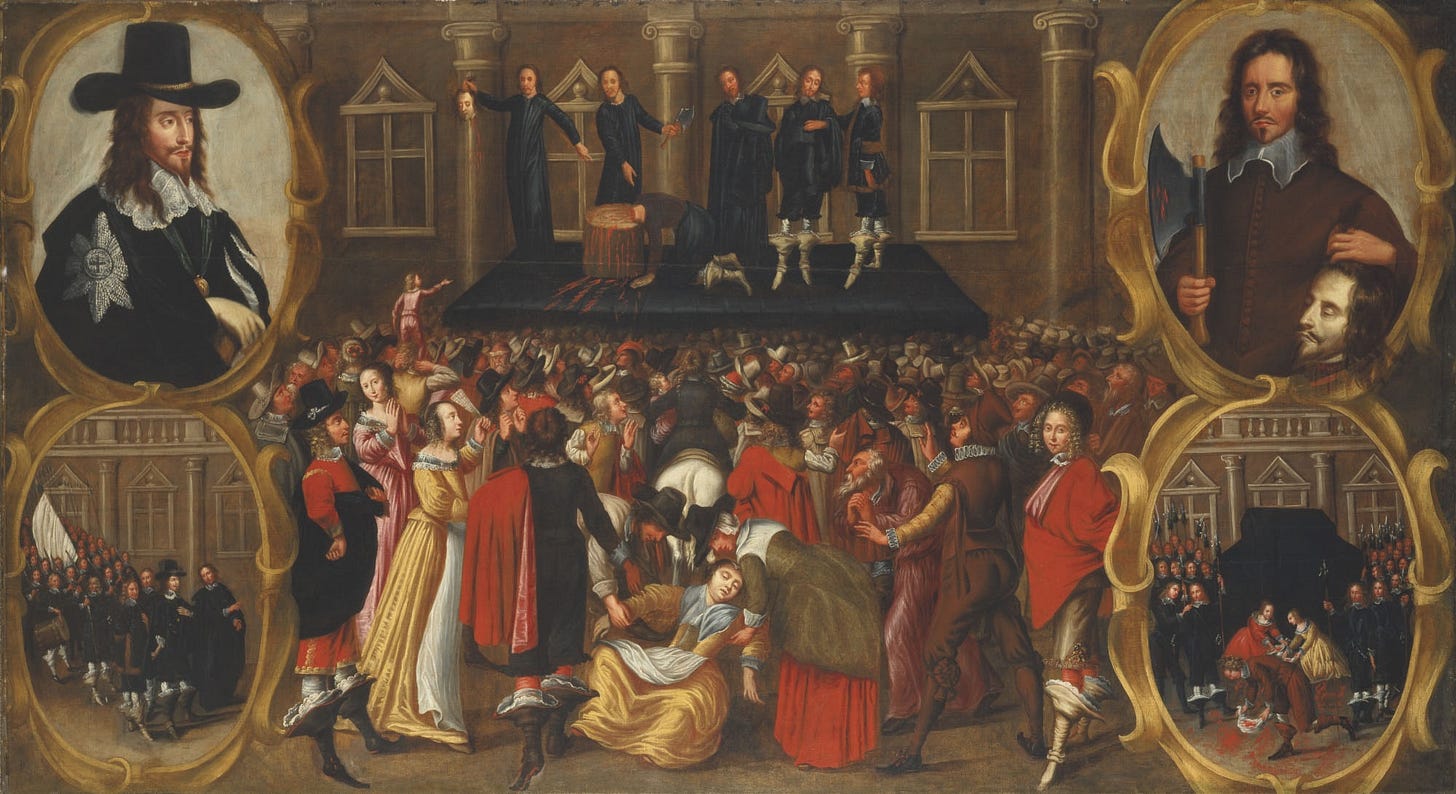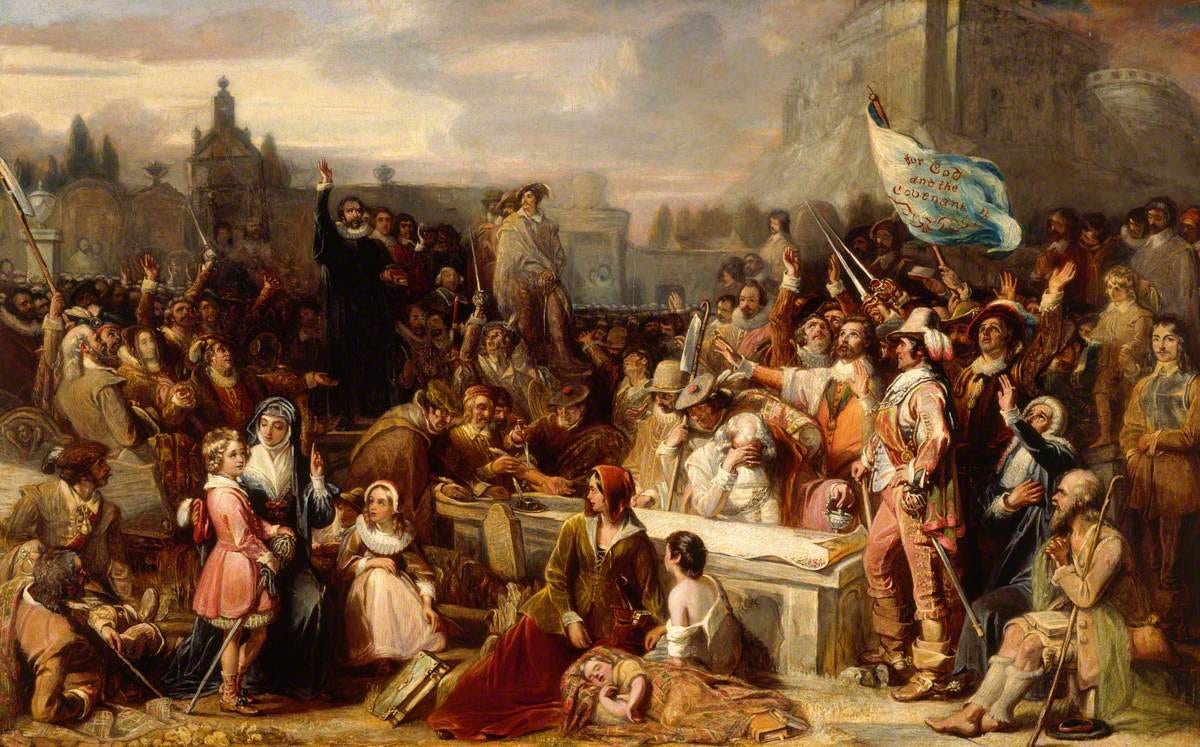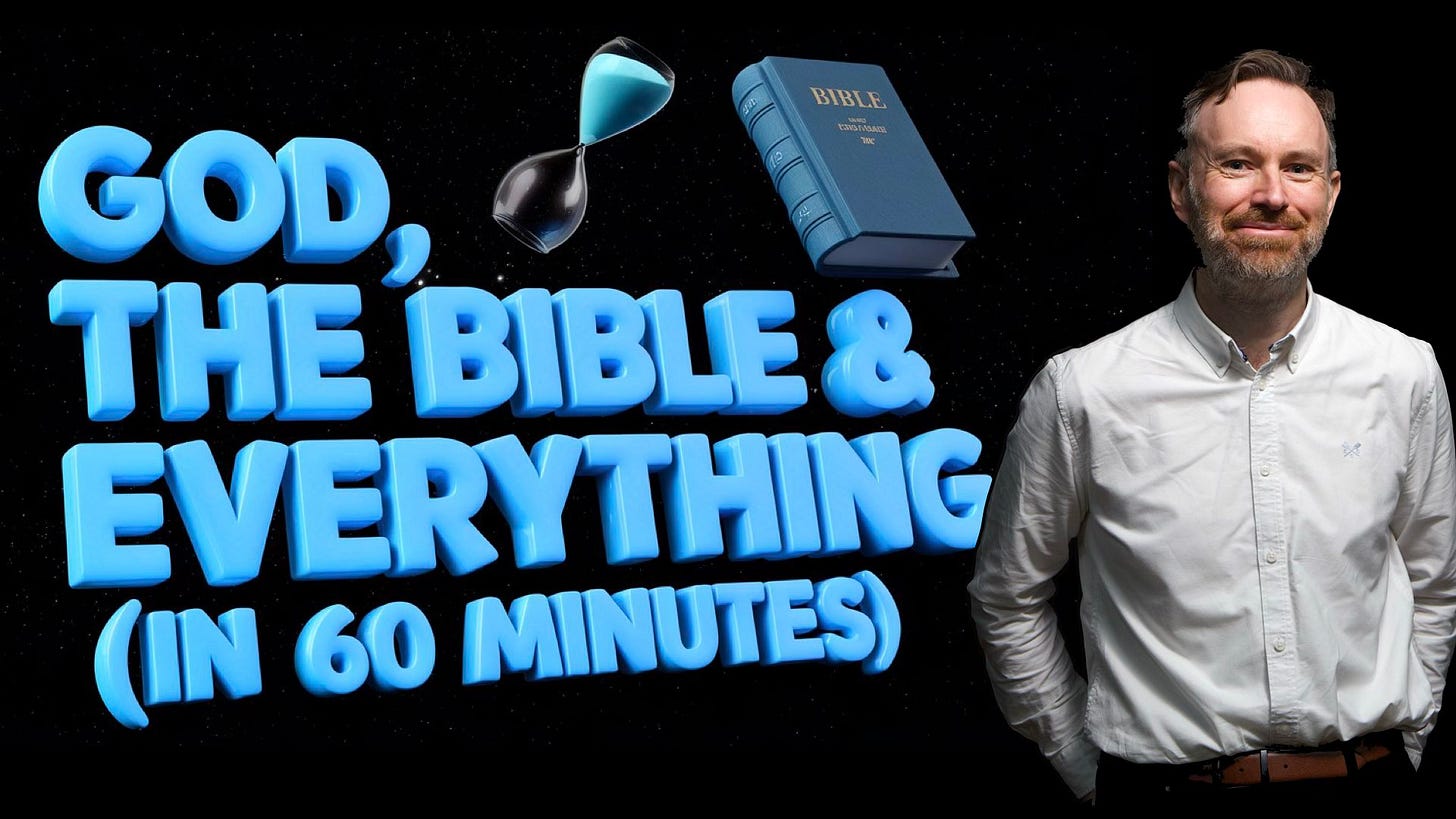On 30th January, the Church of England’s calendar has a lesser festival for “Charles, King and Martyr 1649”.
Although the execution of a king seems significant, Charles was hardly the only King of England to be murdered or killed whilst on the throne. One could mention Richard II, Edward II, Edward V and Henry VI, along with Richard III who died on the battlefield defending his crown. Moreover, Charles’s execution in favour of a commonwealth was an experiment that famously failed. Charles I’s son was invited back to reign and everyone pretended that none of the above had happened.
But the execution of Charles the First was, I believe, cataclysmic because of what I wrote last time about the Wulfstans. The church was the rock through Viking and Norman invasions. Life in England, as in Europe, increasingly centred around the parish church and the Normans literally built on this. They not only erected immense cathedrals like the one in Durham where I did my undergraduate theology degree. They also rebuilt thousands of parish churches like the one in which I was baptised: St George’s, Beckington (where I will be performing my new show in July. See tour dates below.)
Norman structures look very solid. The internal pillars of Durham cathedral are gigantic. From the outside, the edifice remains a huge rocky monster. But Charles I managed to split that rock in half.

I labour the point because we find it hard to imagine how central the church was in English society. If you’re reading this blog, it is possible that the church is central to your life, but it is almost certainly not central to the life of your village, let alone your town. Therefore, we don’t fully appreciate the effect of a conflict that is much misunderstood in our nation’s history: the English Civil War.
Not Just English and Far From Civil
The word ‘Civil’ makes the whole conflict sound like it was fought with great panache and honour between gentlemen. In fact, it was a bloody conflict that was not confined to England. The English Civil War has been rightly rebranded as “The War of the Three Kingdoms”. This makes it sound more like something out of Game of Thrones, but it does justice to the scale and violence of the conflict.
There was immense bloodshed in England and Wales, Scotland and Ireland from 1639 until 1651. Every single community was affected in some way, through divided families, sons lost on battlefields and starvation from shortages caused by marauding armies. Perhaps 200,000 people lost their lives through the conflict, according to English Heritage. That’s 4.5% of the population.
Modern historians have a hard time appreciating the centrality of the church in 17th century, so the war is normally described as a constitutional one. And so 30th January is the date when a tyrannical king, or misunderstood aesthete with impeccable taste, was beheaded by Parliament.
But what is King Charles doing in the Church of England calendar? We don’t remember Richard II. Or III. Or Henry VI. So why “Charles, King and Martyr 1649”, according to Common Worship? Because the civil war was a religious conflict over the very soul of England.
There’s another clue to this in the calendar which we passed over earlier this month. On 10th January, the Church commemorates William Laud, the Archbishop of Canterbury, executed by the same Parliament in 1645.
Oh Dear, Laud
With the King’s blessing, Laud was the author of religious changes in the Church of England – and Scotland – that caused bitter division. It was not just about the divine right of kings. It was also a war about bishops. In fact, the first part of the civil war in 1639-40 in Scotland is called ‘The Bishops’ War’. The conflict was also about the use of the Sabbath, and the doctrine of predestination.
It is a sad chapter in England’s story that the Church, previously a force for stability over the centuries, was now the very source of deep disagreement. It divided communities, churches, families and households. I don’t believe we have fully recovered, not least because the war led to disenchantment with religion in general, and the established church in particular.
Ironically, we are also at the end of the Church of England’s Week of Prayer for Christianity. Christian division is truly tragic. We yearn to be one body in Christ.
But the New Testament is chock full of what to do about disagreement, which implies it is not just possible but inevitable. I once heard Bill Maher, an American comedian and late night talk-show host, critique religion with the usual argument: religion is bad because people fight wars over it. But perhaps the real questions is this: what else is worth fighting over?
Was that interesting? Care to share it with someone? Go on:
Come and see me perform my brand new show: God, the Bible and Everything at these places on these days below. Tickets available for 27th Feb soon. More dates to come. And get in touch if you want to book!
Thurs 27th Feb St Stephen’s Westbourne Park, London
Wed 5th March St Cuthbert’s, Wood Green, London
Sat 8th March Christ Church, Endcliffe, Sheffield
Thurs 13th March St George’s Church, Shrewsbury
Friday 14th March Christ Church, Stone
Saturday 15th March St Barnabas Centre, Danesmoor, Chesterfield
Sat 22nd March King’s Church, Walton-on-Thames
Sat 29th March Christ Church, Newcastle
Thurs 17th April Spring Harvest, Minehead
Friday 16th May All Saints Wandsworth
Saturday 17th May Christ Church, Weston-super-Mare
Saturday 7th June Holy Trinity Combe Down, Bath
Friday 13th June Christ Church North Finchley, London
Wed 2nd July St George’s Beckington








The American popular song from the WW2 era, "This Is Worth Fighting For", suggests some other options besides religion..